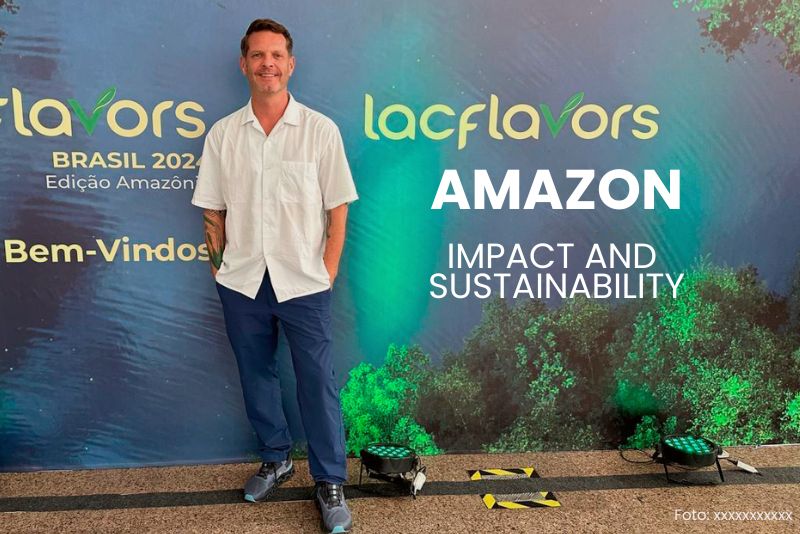Gastromotiva at Lac Flavors Brazil 2024
13/06/2024

David Hertz delivered a speech on the organization’s journey in the Amazon since 2021
Gastromotiva participated in Lac Flavors Brazil 2024 last Wednesday, June 5th. The founder and president of the organization, David Hertz, gave a speech where he shared the impactful journey that the organization has been undertaking in the Amazon since 2021. The event was an opportunity to highlight the significant impact that Gastromotiva is making through Social Gastronomy, focusing on the development of people, fostering the creation of opportunities and income, ensuring food security for the population, and preserving the environment through the transformative power of food.
Gastromotiva’s local work is robust, especially in partnership with the Acariquara Institute. The organization is constantly delving into territorial aspects and co-creating solutions with the local population. This collaborative work is essential for the sustainable development of the region.
“The Amazon is a region rich in biodiversity, and with it, possesses an extensive and diverse food heritage that can become a solution to the problems the territory faces, if worked in alignment with sustainability concepts and the promotion of equity,” said David Hertz.
Among the projects developed by Gastromotiva in the Amazon are Sustainable Rural Development through the Family Poultry Farming Project; the “Make and Sell” entrepreneurship course, in partnership with the Acariquara Institute, supported by Stop Hunger, Sodexo, and Coca-Cola; and the projection of the construction of a floating Social Gastronomic Restaurant in the community of Carreiro da Várzea, at the Meeting of Waters, which aims to provide food security for that population.
Additionally, the event featured prominent chefs such as Antonuela Ariza, Juan Pablo Clerici, Christian Bravo, and Enrique Limardo. Each brought their experience and social vision, enriching the debate on the Amazon and its territorial capacity to develop sustainable food systems.






